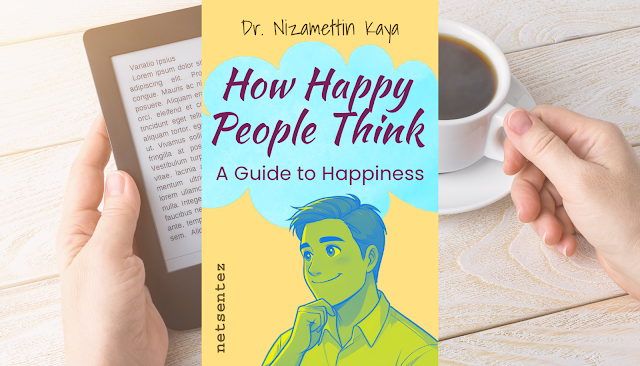Lavender Meditation
Would you like to take a moment to step away from the fast-paced, stressful rhythm of daily life? Lavender meditation invites you to a world filled with tranquility and peace. Through this simple yet powerful practice, you can lower your stress levels, rediscover your life energy, and feel happier and more balanced. When practiced before sleep, it also helps you drift into a restful slumber with ease. With lavender meditation, offer a gift to both your mind and soul!
For years, I’ve practiced meditation by focusing on my breath. This technique helps clear my mind of regrets about the past and anxieties about the future, allowing me to center myself in the present moment. I feel the “now” deeply, becoming more open to the experiences life offers in that instant. However, there are times when my mind pulls me into the dark corners of the past or the uncertainties of the future. In such moments, despite my efforts, I often find myself drifting away from the present and struggling to return.
This is where the scent of lavender oil has become an indispensable aid for me. While focusing on the breath, body, air, and surroundings is fundamental in returning to the present during meditation, I’ve realized the tremendous benefit of anchoring the mind to a particular object. A pleasant scent, like that of lavender oil, has proven to be incredibly effective in enhancing focus. Its calming effect helps me break free from distracting thoughts and re-enter the deeper realms of meditation. As such, lavender has become not just an object in my meditation practice but an essential element for mental and emotional harmony. On nights when my mind is restless and I find it difficult to sleep, a few minutes of inhaling lavender oil works wonders. I place a drop or two on my pillow, focus solely on the scent, and easily drift into sleep.

|
| Lavender Meditation |
When I was a child, around four or five years old, the women in our neighborhood would hold religious gatherings called Mevlit on special occasions. These gatherings were more than just routine events for me; the details of the rituals left a deep impression. The women would gather in the host’s house to listen to Mevlit recitations, sing hymns, and pray together. When my mother said, “Let’s go to the Mevlit,” I would feel a thrill of excitement, thinking about the sweet taste of Mevlit şerbeti and the enchanting aroma of buhur (incense). I still remember the rosewater lovingly poured into hands and the unique taste of the fragrant sweets and confections offered during these gatherings.
During the Mevlit, midway through the ritual, the host would take a stove shovel, fill it with glowing embers, and sprinkle a plant called buhur over the coals. The heat would release a captivating aroma that permeated every corner of the room. The woman would carry the buhur-filled shovel around the room, and everyone would inhale the fragrance deeply, in a state of reverence. At that moment, it felt as though time stood still, leaving only the scent and the calmness of the soul. As a child, I couldn’t fully grasp the significance of this experience, but now I see that the ritual created a sacred atmosphere, serving as a form of meditation. I believe the scent calmed the minds of those present and opened their hearts to prayer and reflection.
The buhur used in such rituals is typically an aromatic incense made from natural resins, plants, or woody materials. For thousands of years, buhur has been used across various cultures for both spiritual and cultural purposes. Historically, types like styrax (frankincense), myrrh, amber, and sandalwood have been preferred for rituals, meditation, and relaxation. The scent released by burning incense calms the mind and fosters a spiritual connection. This fragrant smoke not only creates a sacred atmosphere but also carries a cultural heritage from the past. The buhur aroma in the Mevlit ritual reflects these deep and meaningful ties, much like the sanctity of roses, rose oil, and rosewater in Islamic traditions.
Just as the buhur scent in Mevlit rituals created a sacred atmosphere that calmed the mind, lavender meditation invites one to focus on the present moment through its unique fragrance. The power of scent in supporting mental tranquility has been a consistent theme across various rituals and practices from past to present. Today, lavender meditation emerges as a natural and effective method for coping with the fast pace and growing stress of modern life.
Lavender meditation can be considered a modern reflection of these rituals. The soothing and calming properties of lavender add a layer of depth to meditation practice. When the mind engages with the scent of lavender, it becomes easier to shed regrets about the past and anxieties about the future, enabling one to live more fully in the present. This benefit extends beyond meditation to help cultivate mindfulness in the chaos of everyday life.
The serenity and reverence created by buhur and rose oil align perfectly with the benefits offered by lavender meditation:
- Mental Calmness: Lavender scent reduces stress and anxiety, relaxing the mind.
- Deep Meditation: Its ability to enhance focus deepens the meditation experience.
- Emotional Balance: Lavender meditation, much like sacred rituals, fosters emotional equilibrium.
- Improved Sleep Quality: Lavender promotes relaxation before bedtime, aiding in better sleep.
In conclusion, lavender meditation is a powerful tool for enhancing personal peace and supporting mental and emotional well-being. It brings the spiritual and mental tranquility experienced through buhur rituals into the modern world, offering a natural method for restoring balance. By discovering this practice, individuals can bring more serenity and harmony into their lives. Lavender meditation serves as a bridge between tradition and modernity, reminding us that inner peace is accessible to all.
Warning
While lavender oil is generally considered safe and relaxing, it may cause allergic reactions, skin sensitivity, or respiratory issues in some individuals. Additionally, it carries potential risks such as hormonal effects in children, complications during pregnancy or breastfeeding, and interactions with certain medications. If you have a sensitive constitution or are taking regular medications, it is important to consult a healthcare professional before using lavender oil. When practicing lavender meditation, use it in moderation and pay attention to your body's responses.
How to Practice Lavender Meditation
- Prepare Your Space: Sit in a comfortable chair or lie down in bed in a quiet environment. Apply a small amount of lavender oil to the area near your nostrils on your upper lip, or place a few drops on your pillow. Alternatively, light a lavender-scented candle.
- Start with Breathing: Close your eyes and take a few deep breaths. Inhale slowly through your nose, noticing the lavender scent, and exhale gently through your mouth.
- Focus on the Scent: As you relax, direct your attention to your breath and the lavender fragrance.
- Visualize: Imagine yourself walking through a lavender field. Feel the breeze carrying the lavender scent and admire the calming hues of purple.
- Body Scan: As you breathe in the lavender scent, turn your focus to your body. Starting from your toes and moving to your head, notice each part of your body and release any tension with your breath.
- Conclude Gently: After 5–10 minutes, slowly open your eyes. Stretch lightly to reintroduce yourself to your daily routine.
This article is the English version of my Turkish blog post on "netsentez | NetGelişim."
Lavanta Meditasyonu
How Happy People Think, A Guide to Happiness
 |
| netsentez |
With this book, I invite you on a deep journey into the thought patterns that form the essence of happiness and the key to mental well-being. On this journey, you will explore the perspectives and thinking habits of happy people, adding more joy to your life.
Dr. Nizamettin Kaya
Review/Buy:


